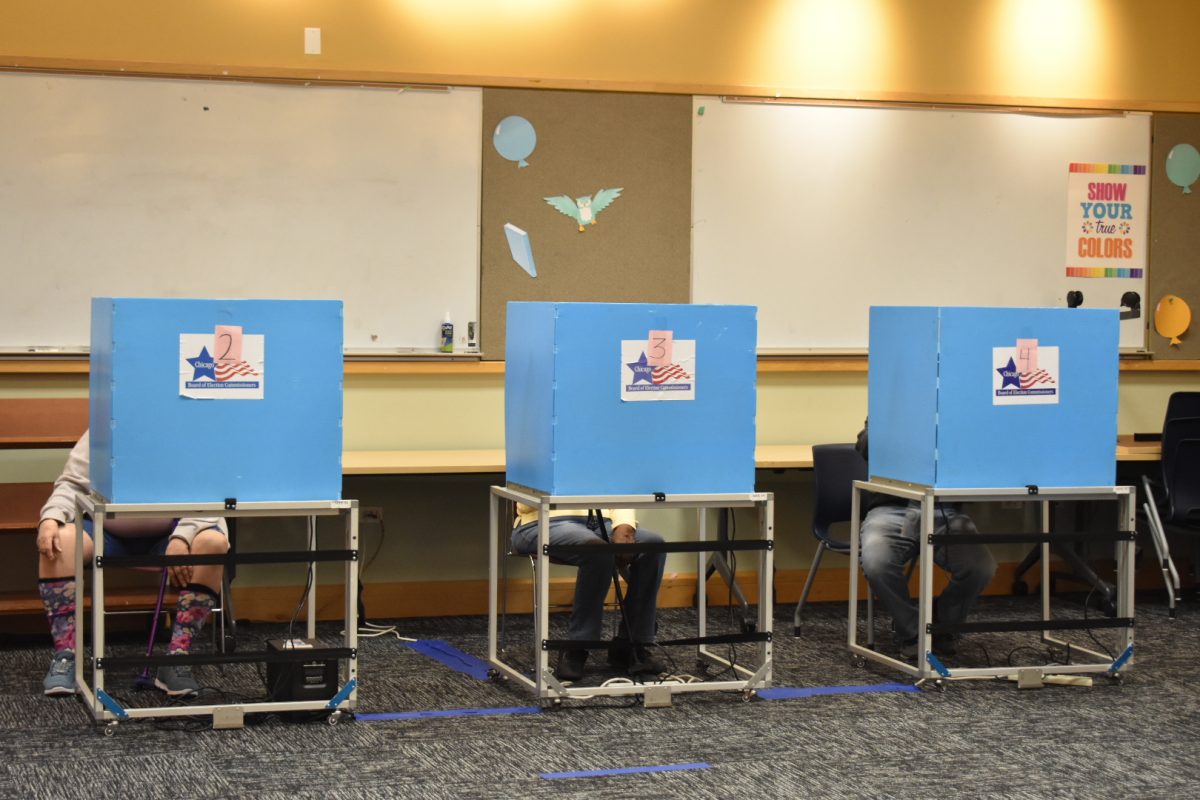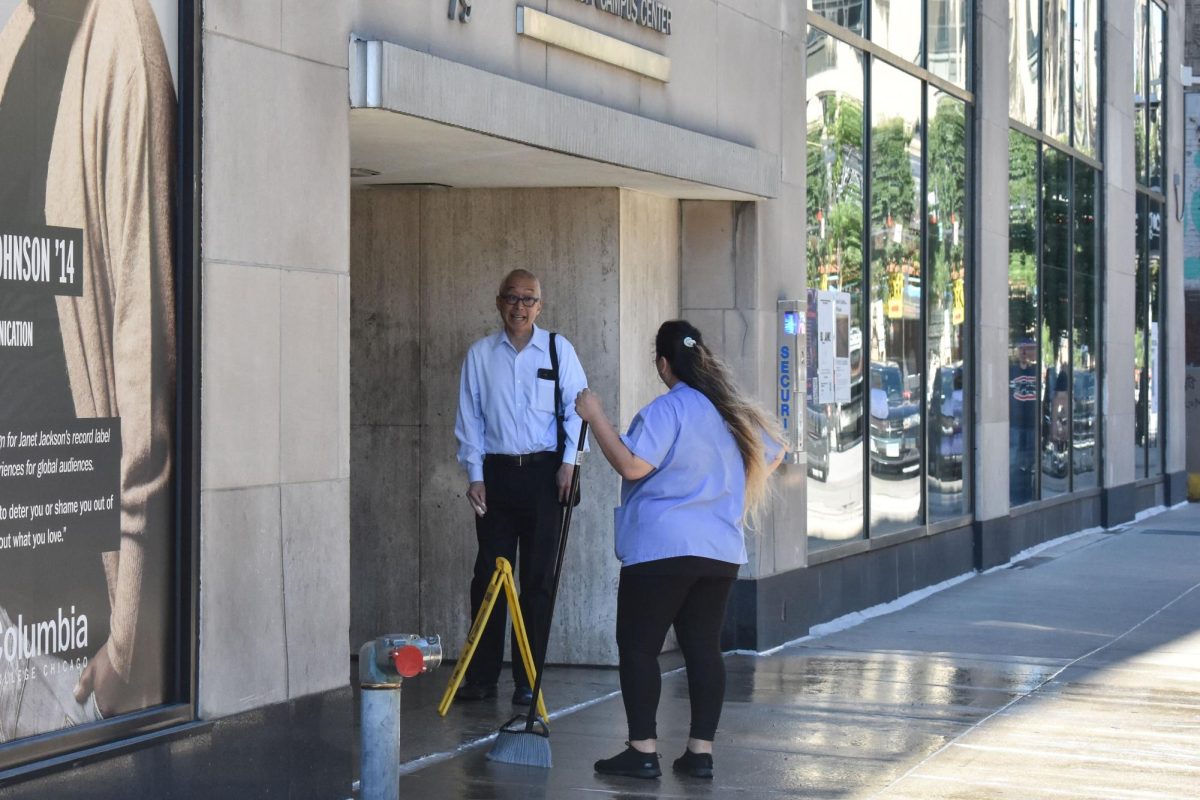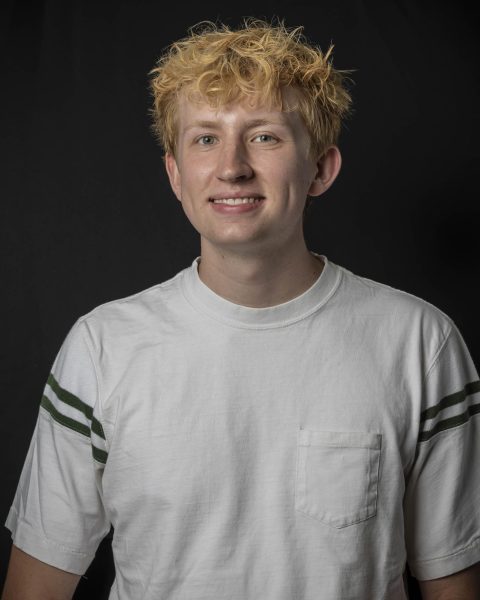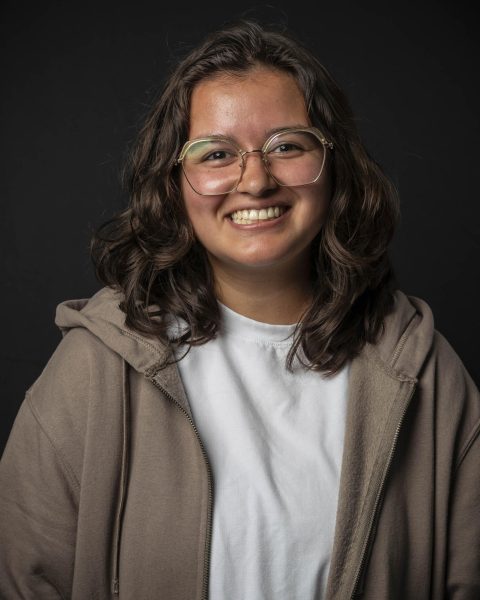The Humanities, History and Social Sciences Department is at the center of the radical changes to restructure the college, including making the academic experience for students more focused on their disciplines, with fewer general education requirements.
In his draft advisory proposal, President and CEO Kwang-Wu Kim proposed reducing the college’s core requirements from 42 to 30 and called for the possible elimination of 11 to 13 full-time faculty positions across HHSS, English and Creative Writing and the Science and Mathematics departments.
HHSS faculty have been particularly vocal during the feedback process for the draft, which is now with the Faculty Senate for review. A final report is due to the Board of Trustees on May 2.
Gabriela Díaz de Sabatés, assistant professor in the HHSS Department, said she is concerned that reducing the number of core requirements impedes the ability to give students a well-rounded education.
“I think that Columbia has a healthy amount of general requirements and courses that really provide students with a base knowledge that is not just to become a good photographer or an excellent filmmaker,” said Díaz de Sabatés, who is teaching “Women’s Life Stories” and two sections of “Women and U.S. Society” this semester. “It provides students with a base knowledge to make the best out of their lives. Skills that you can use not only in your profession but also in your life as a person.”
The possibility of reducing core requirements has also prompted questions about whether or not the college is becoming less of a liberal arts institution.
Díaz de Sabatés said that “watering down gen-ed requirements” would push Columbia toward a trade school model, something Kim and Senior Vice President and Provost Marcella David have both said is not the intent.
At a recent town hall sponsored by the Faculty Senate, David said the college was “not moving away from the liberal arts and sciences.”
“We’re committed to liberal arts and sciences,” she said.
Díaz de Sabatés said that her courses, along with her colleagues, offer valuable opportunities for students across disciplines to develop a more robust knowledge base of various issues and histories.
“Our classes are spaces where people from all majors come together—all minors, all interests— sit down and discuss issues that they won’t be able to discuss in other classes,” she said. “If you don’t provide students [with] that space, where are students going to find those spaces to think together?”
Michelle Yates, associate professor in the Humanities, History and Social Sciences Department, echoed Díaz de Sabatés. “As a full-time faculty member at this institution, I know my classes are incredibly important and they add a lot of value to students’ education,” said Yates, who is teaching two humanities classes this semester: “Feminism and Film” and “Nature and Environmentalism in U.S. Culture. She is also teaching a CCCX 200-level course, “Environmental Justice Culture of Climate Change.”
She added, “I know my colleagues’ classes are incredibly valuable.”
Yates said it is important to maintain a strong liberal arts education given the career changes that many students could experience after graduation.
“A lot of students are not going to work directly in their majors; they’re going to work adjacent to their majors,” she said. “What’s going to help them be flexible in how their careers pan out are the kinds of skills that they develop through the liberal arts and sciences.”
Sugey Mondragon, a senior illustration major, said that her experience taking courses in the Humanities, History and Social Sciences Department has been “nothing but positive.”
Mondragon said that she’s observed the love students have for the diverse offerings of courses that align with the college’s core requirements, such as “Fantasy Literature” and “Biology of AIDS.”
“There’s such a big love for them among students,” Mondragon said. “Everyone raves about these classes, so I think taking away those small, niche classes would just make us like any other old school and take away the individuality that Columbia has.”
Mayra Robles Gomez, a junior cinema and television major, said that the core courses offered have helped them expand their view and understanding of the world.
“Since I come from a family of immigrants who have traditional ideologies, I’ve viewed college and these kinds of classes as an escape to somewhere where I’m able to comfortably have conversations,” said Gomez, who is also minoring in Latino and Latin American studies and women’s, gender and sexuality studies. “This proposal to change the accessibility of these courses concerns me because of how vital many of these are in terms of educating ourselves on issues we might not have been able to learn or talk about during our prior years of education.”
Stephanie Frank, associate professor of instruction in the Humanities, History and Social Sciences Department, said that the proposed changes could have a substantial impact on the college’s reputation. Frank currently teaches two sections of “Religion and Gender” and “Religion in U.S. Law and Politics,” each.
“In 10 years, Columbia College may come to mean something completely different from what it means right now,” Frank said. “I think a lot of the value of your degree is contingent on people knowing what a Columbia degree stands for and liking that.”
















